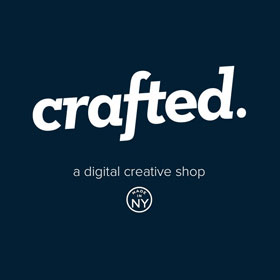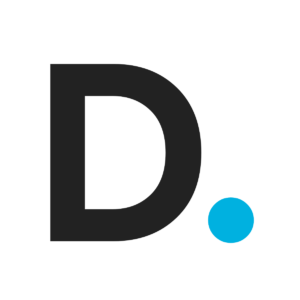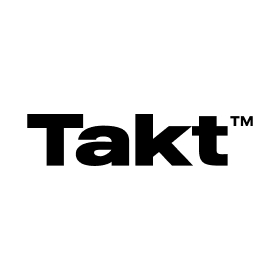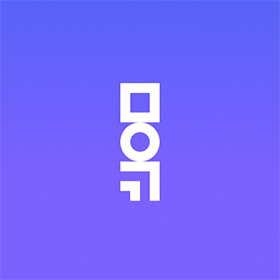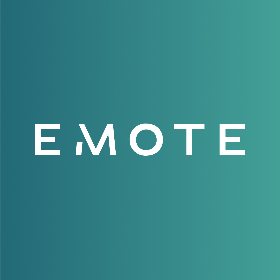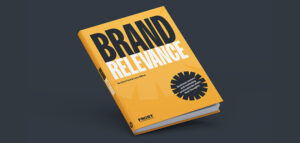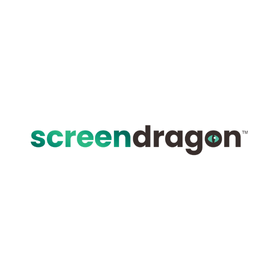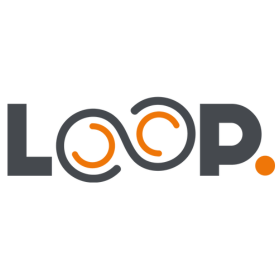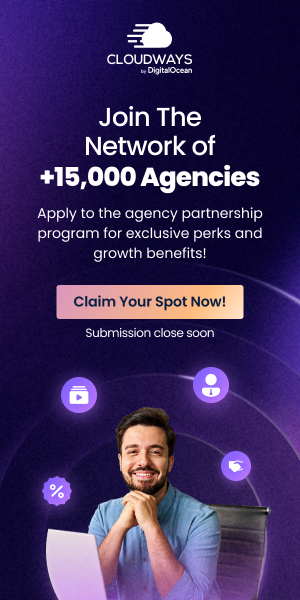
Digital Marketing Agency Interview Guide: Common Questions & Strategies
Preparing for a digital agency interview involves understanding the scope of questions you might face, ranging from general questions about your background to detailed discussions on digital marketing strategies.
With global digital advertising spending expected to reach $752.8 billion in 2024, marking a 4.6% increase from the previous year, the digital marketing sector is experiencing important growth. This expansion highlights the role of digital platforms in marketing and the numerous opportunities they present for professionals in the field.
In this guide, we aim to prepare you for various questions you might encounter, from digital marketing interview questions to comprehensive digital marketing interview questions and answers. Whether you’re bracing yourself for digital marketing manager interview questions or exploring the broader realm of digital marketing questions and answers, your preparation is key.
By the end of this guide, you’ll be equipped to navigate through various questions confidently and present yourself as a knowledgeable candidate ready to make a significant impact in the ever-evolving digital marketing industry.
As you move forward, remember to leverage resources like our platform, Digital Agency Network, where more than 3000 digital agencies are listed. Especially the “digital marketing agency jobs” section is a great opportunity for you to find the best digital marketing jobs that align with your skills and career aspirations in the dynamic digital marketing landscape.
General Questions for Digital Marketing Interviews
1. Can you tell us about yourself?
“I’ve always been fascinated by the power of digital spaces to connect people with brands in meaningful ways. My journey in marketing started during my college days when I led social media campaigns for campus events. Since then, I’ve worked in various digital marketing roles, always intending to learn more, do more, and bring fresh ideas to the table.”
2. What motivates you to do your best?
“What really drives me is seeing the impact of my work. Whether it’s through increased website traffic, higher engagement rates, or positive customer feedback, knowing that my efforts are making a real difference is incredibly motivating.”
3. What is your biggest accomplishment?
“My proudest moment was leading a campaign for a non-profit that surpassed our engagement targets and raised significant funds. It was a true testament to the power of strategic digital marketing combined with a cause worth rallying for.”
4. What are your biggest strengths?
“I’d say my biggest strength is my adaptability. Digital marketing is an ever-evolving field, and being able to pivot strategies quickly based on data and trends has been key to my success.”
5. What are your biggest weaknesses?
“I’m someone who tends to dive deep into details, which is great for analytics and strategy but sometimes slows me down on smaller tasks. I’ve been working on this by setting time limits and prioritizing tasks better.”
6. What interests you most about this position?
“I’m excited about the opportunity to work with a team that values innovation and is committed to pushing the boundaries of what’s possible in digital marketing. The chance to contribute to impactful projects and learn from industry leaders is what draws me to this role.”
7. Why are you planning to leave your current job?
“I’m looking for an opportunity where I can take on more strategic responsibilities and work on a wider variety of projects. I feel this role aligns perfectly with my career goals and my desire to challenge myself further.”
8. Why do you want to work for our organization?
“Your company’s innovative approach to digital marketing, especially your campaigns around social responsibility, truly resonates with me. I admire your commitment to not just achieving business goals but also making a positive impact on the community.”
9. What makes you a good candidate for this position?
“With my experience in crafting and executing comprehensive digital marketing strategies, along with my passion for continuous learning, I believe I can bring valuable insights and results to your team. My proactive nature and creative thinking align well with your company’s vision.”
10. Where do you envision yourself in five years?
“In five years, I see myself as a leader in the digital marketing field, where I can contribute to shaping innovative marketing strategies and mentor the next generation of marketers. I’m particularly interested in exploring emerging technologies and their application in digital marketing.”
To see some more alternative answers to top interview questions and answers, we recommend watching the video below:
Interview Questions about Experience and Background
1. What digital marketing platforms and software do you use?
“I’ve worked with a range of tools, including Google Analytics for data analysis, SEMrush for SEO and SEM campaigns, Hootsuite for social media management, and Mailchimp for email marketing. Each tool offers unique insights and capabilities that are essential for modern digital marketing strategies.”
2. What do you like most about digital marketing?
“What I love most is the direct interaction with the audience. Digital marketing allows for real-time engagement and feedback, making it possible to fine-tune campaigns for the best outcomes. It’s thrilling to see strategies come to life and evolve.”
3. What do you like least about digital marketing?
“The challenge, and sometimes frustration, comes from the pace of change. Keeping up with the latest algorithms, platforms, and tools can be daunting, but it’s also what keeps the field exciting. It pushes me to never stop learning.”
4. What is your digital marketing philosophy?
“My philosophy centers around the user experience. I believe that understanding and prioritizing the needs and preferences of the audience leads to the most effective marketing strategies. It’s about creating value, not just visibility.”
5. Can you describe your greatest success in digital marketing?
“One of my greatest successes was turning around the online presence of a small business that was struggling to make an impact. By revamping their SEO strategy and engaging with their community through targeted social media campaigns, we saw a 120% increase in organic traffic and a significant boost in sales within six months.”
6. Can you discuss your worst digital marketing failure? How did you resolve it, and what did you learn?
“In one of my early campaigns, I overestimated the appeal of a product to a particular demographic, leading to a less-than-stellar response. It was a humbling experience that taught me the importance of market research and listening to customer feedback. I learned to never assume but to test and validate ideas. To resolve it, we pivoted our approach based on customer insights, focusing on a different value proposition that resonated more with our audience. This experience taught me the value of adaptability and the importance of deeply understanding customer needs.”
7. How do you motivate your digital marketing team to do their best?
“I believe motivation comes from engagement and ownership. I strive to involve the team in strategy discussions, valuing everyone’s input. Celebrating small wins and learning from setbacks together fosters a culture of continuous improvement and keeps everyone motivated.”
8. What do you think is the biggest challenge in digital marketing, and how are you addressing it?
“The biggest challenge is staying ahead in a rapidly evolving landscape. I address this by fostering a culture of continuous learning within my team—encouraging them to experiment with new ideas, attend workshops, and share insights. This approach keeps us agile and innovative.”
9. What do you think is the next major trend in digital marketing?
“Personalization at scale is the next frontier. As technology advances, so does our ability to offer highly personalized experiences to large audiences. Investing in AI and machine learning technologies will be key to crafting these tailored interactions without losing the personal touch.”
10. What are the most important qualities of a digital marketer?
“Curiosity, adaptability, and a data-driven mindset are crucial. Curiosity fuels continuous learning, adaptability is essential for navigating the ever-changing digital landscape, and a data-driven approach ensures decisions are grounded in solid insights.”
Before diving into the detailed digital marketing agency interview questions and sample answers for success, we want to share our social media manager interview questions for your review. After a careful review of these exemplifying questions, you will have a good understanding of which skills are required to settle for a great opportunity, such as the ones offered by digital marketing companies in the USA!
In-Depth Digital Marketing Agency Interview Questions and Answers
1. How do you keep up with digital marketing trends?
“I make it a point to learn something new every day. I follow top marketing blogs, join webinars whenever I can, and participate in online forums. Websites like Moz and HubSpot are my go-to. It’s like having my ear on the ground to catch the latest buzz in the marketing world.”
2. How do you use data to make marketing decisions?
“Data tells a story, and I listen to it to decide what’s next. I use tools like Google Analytics to see how campaigns are doing. It’s about seeing what works, and what doesn’t, and tweaking things from there. Kind of like using a compass to navigate through a forest.”
3. How do you ensure your team meets deadlines?
“Clear communication is key. I lay out what needs to be done and by when, and then we use project management apps to keep track of everything. I check in with my team regularly, so we can solve any hiccups together. It’s all about teamwork and keeping everyone motivated.”
4. What strategies do you use to drive more traffic to a website?
“It’s all about mixing things up. I make sure the website is easy to find through search engines, create content that people want to read and share it on social media. Sometimes, I’ll run ads to get an extra boost. It’s about getting the right eyes on the site.”
5. Can you explain the difference between SEO and SEM?
“Sure, think of SEO as the effort you put in to make your website a magnet for search engines—like using the right words and having a great website structure. SEM includes SEO but also involves paying for ads to get your site noticed. SEO is the long game, and SEM helps you get quick wins.”
6. What’s your experience with content marketing?
“I’ve been hands-on with creating stories that resonate with the audience—whether it’s blog posts, videos, or infographics. It’s about understanding what the audience likes and then delivering it in a way that engages them. And, of course, seeing how well it does and learning from it.”
7. How do you handle your digital marketing budget?
“I start by looking at what we need to achieve and then spreading the budget across different activities, making sure to put more into what’s working best. It’s a bit like juggling—keeping everything in the air and making adjustments as needed.”
8. Tell me about a digital marketing challenge you’ve faced.
“Once, after a website redesign, we saw a dip in traffic. I had to play detective to figure out why and then fix it. We improved the website content and speed, and gradually, traffic started picking up again. It taught me a lot about patience and persistence.”
9. How do you measure a social media campaign’s success?
“I set goals first—like do we want more followers, or is it about getting people to talk about us? Then, I watch the numbers closely, like how many people are engaging with our posts. It helps to know if we’re hitting the mark or need to try something different.”
10. How do you start a digital marketing strategy from scratch?
“I begin with getting to know our audience and what we want to achieve. Then, it’s about choosing the right mix of online places to get our message across, deciding what we’re going to say, and figuring out how to measure our success. It’s like mapping out a treasure hunt.”
11. What role does email marketing play in your strategy?
“Email marketing is like having a direct line to our customers. It lets us send personalized messages right to their inbox. It’s amazing for keeping our audience engaged and driving sales, especially when it’s part of a bigger marketing puzzle.”
12. How do you adjust marketing strategies to market changes?
“Staying adaptable is key. I keep an eye on what’s happening in the market and with our audience’s preferences. Then, it’s about being ready to pivot—whether that means trying out new platforms or changing our message. It’s about staying relevant and resonant.”
Essential Tips for Succeeding in Digital Agency Interviews
Standing out in a digital agency interview requires more than just knowing the right answers. Here are some valuable tips to help you navigate the interview process successfully and make a lasting impression. Before diving into our tips, we suggest watching this 5-minute video made by Neil Patel:
1. Do Your Research
Before the interview, take the time to research the agency thoroughly. Understand its mission, the clients it serves, its culture, and recent achievements or campaigns. This knowledge will help you tailor your answers and show your genuine interest in becoming part of their team.
2. Showcase Your Creativity and Adaptability
Digital agencies value creativity and the ability to adapt to new trends or challenges. Prepare examples of how you’ve solved problems creatively or adapted strategies based on data insights. Demonstrating these qualities can set you apart as a candidate who can thrive in a dynamic environment.
3. Highlight Your Collaborative Skills
Teamwork is crucial in a digital agency setting. Share experiences where you successfully collaborated with others, whether it was leading a project, working across departments, or contributing to a team effort. Highlighting your ability to work well with others underscores your potential as a valuable team member.
4. Bring a Portfolio of Your Work
A visual representation of your work can be incredibly powerful. Bring a portfolio (either digital or print, depending on the situation) that showcases your best projects. Be prepared to discuss the strategies behind them, the challenges you faced, and the results you achieved. This both proves your capabilities and your ability to see projects through from conception to completion.
5. Ask Insightful Questions
Towards the end of the interview, you’ll likely have the opportunity to ask questions. Prepare thoughtful questions that demonstrate your interest in the agency and your desire to contribute to its success. Inquire about the agency’s approach to emerging digital marketing trends, team dynamics, or the challenges they’re currently facing. This shows your proactive thinking and engagement with the role.
6. Express Your Passion
Digital agencies are looking for candidates who are not just skilled but also passionate about digital marketing. Convey your enthusiasm for the field and your eagerness to contribute to and learn from the agency’s projects. Passion is contagious and can make a memorable impact.
7. Follow Up
After the interview, send a thank-you email to express your appreciation for the opportunity to interview and reiterate your interest in the position. This not only shows good manners but also reinforces your enthusiasm for the role.
Throughout this guide, we’ve explored a variety of questions, from general questions about your personal and professional background to more complex discussions focused on digital marketing strategies and challenges.
By preparing for both digital marketing interview questions and answers and understanding the nuances of questions asked in an interview for digital marketing, you position yourself as a strong candidate who is well-versed in the demands and dynamics of the digital marketing landscape.


